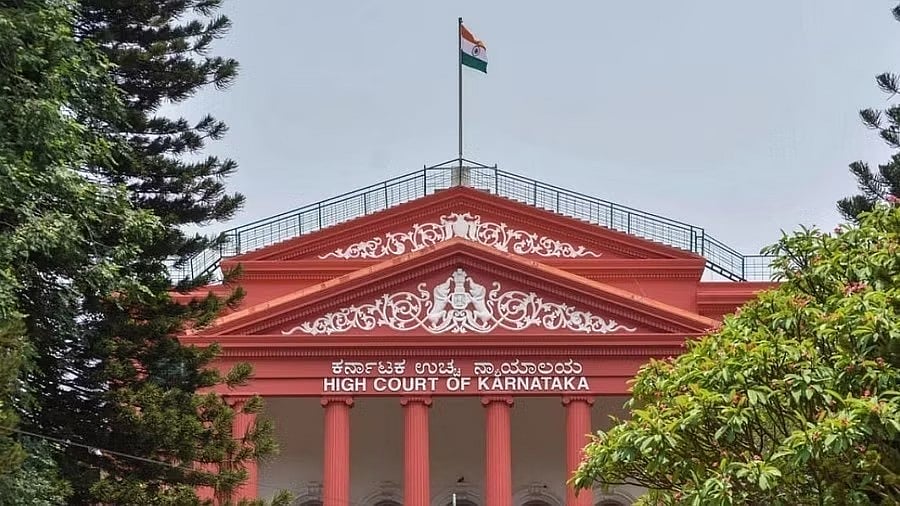
The Karnataka High Court.
Credit: DH File Photo
Bengaluru: The Karnataka High Court on Tuesday dismissed a Public Interest Litigation (PIL) seeking directions for various steps to clear the encroachments of Waqf properties in the state.
A division bench comprising Chief Justice N V Anjaria and Justice K V Aravind said that the directions to deal with Waqf properties in particular manner or otherwise cannot become a subject matter of PIL when the field is occupied by a law – The Waqf Act, 1995.
The petition was filed by one Syed Ajaz Ahamed, a retired KAS officer from Bengaluru city. Among various other prayers, the petitioner sought for withdrawal of the circular dated November 9, 2024, instructing to stop the creation of khatas in the names of waqf in respect of the properties or lands which are cultivated by farmers or which otherwise belong to private khata holders. The bench observed that such directions could be perceived only in public good and public interest only.
The petitioner cited a report and said of the 1,12,000 acres of land with the Waqf, 91,953 acres of land is encroached upon by mutawalis and others. The petition prayed to ensure reimbursement of properties acquired under the Land Acquisition Act or by way of allocating alternative land and also to recover physically all the properties belonging to Waqf. The petition further sought a direction to the Chief Secretary to comply with the provisions of section 104 A of Waqf Act 1995.
A prayer was also made to direct the authorities to identify Waqf properties given on lease and to ensure that leases are given in accordance with the Waqf Properties Lease Rules. In addition, the petitioner also sought to prevent politicisation of the Waqf matters in the print, electronic and social media and also to treat any statement, action or contravention in relation to the Waqf matter to be deemed as contempt.
“All the prayers are the subjects to be dealt within the executive realm by the executive authorities. Though the petition is drafted with lengthy pleadings, they are in the nature of general statements. The statute called Waqf Act 1995 and Rules made thereunder in relation to administration, management of Waqf properties agitating any issues in that respect, those acts and rules have to be adverted to,” the bench said.